
We caught Justin in Bratislava, just before the soundcheck for Crippled Black Phoenix’s show. We discussed what’s different about being a musician at 25 and now, Brexit and what it means for British bands, the music industry, deals with labels, how having to work and having a band go together, the new album, the rise of escapism, and the therapeutic effect of music.
Ave Noctum: So, Justin, how is midlife?
Justin Greaves (laughs): It’s always an adventure.
AN: What’s different about making music at 25 and now?
JG: Well, a lot has changed, just on a personal, physical level, I guess. It’s a little bit harder to do it. But there is something about it that keeps me, that keeps the band, that keeps the other guys going. It’s always worth it. Yes, sometimes I think, Can I actually go through with this? I mean, I try to keep fit and everything, but it’s just the age thing…
AN: I know, my back hurts from the long train ride.
JG: Yeah (laughs), it’s a little bit more demanding, I suppose. When I was 25 we could just do it forever, it didn’t matter. We were in the back of vans, sitting on equipment, going days and days with no sleep, and that’s just not possible now… And of course, the music industry, that’s all changed a lot. It’s a lot tougher for bands, especially for a band like us. It’s not like we’re a three, four-piece band. The logistics a really difficult.
AN: To get everyone together?
JG: Yes, we’re kind of an expensive band to be on the road. The travelling logistics are expensive. There’s lots of us.
AN: How many exactly?
JG: There’s eight of us, and when we travel we have a sound engineer, we have Zoltan, tour managing… So, we’re usually ten, sometimes eleven.
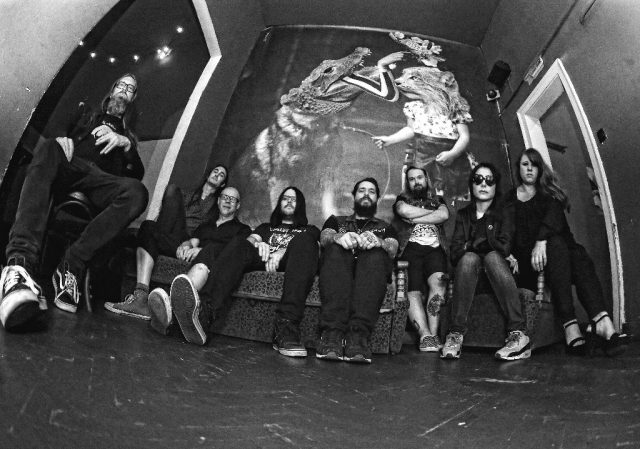
AN: Speaking about expensive, have you read the article in The Guardian about this petition Bob Geldof started regarding British musicians and Brexit?
JG: No, I haven’t seen it, I haven’t seen anything from Bob Geldof. He always likes to jump in, though.
AN: Yeah, I know, but he says touring is going to be much more expensive for British bands, once Brexit goes through.
JG: Yes, the signs are not very good. I mean, the whole Brexit thing is a joke. It should never have happened in the first place. The EU was formed to prevent conflict… Don’t get me started on Brexit.
AN: Why not? I wanted to ask you about it anyway.
JG: Well, obviously, as a musician it’s never been easy, especially in England, not for a long, long time, because there is not a lot of government funding for bands or venues.
AN: Do you get any kind of funding now?
JG: No, nothing.
AN: So, what do you do for money?
JG: We have to work. It’s an industry thing, it’s the whole thing with streaming… There’s not that sort of income to be found with streaming. We do really well on album sales, physical album sales, but we’re not an online band. And if people do get the music online, they stream it, and we don’t get anything from that. And it does affect you! It affects a lot of bands. It’s the same as with any plutocratic system: the rich get richer, the poor get poorer. It’s the same with the music industry. There’s nothing there for the bands in the middle, the hard-working bands. They’re investing money in doing albums, doing all the ground work on tour… What you get is the guys who record in their bedrooms and then put the music out for free or for pay how much you like, and then you have the established big artists, they are OK because they have that kind of fan base to have the funding. Anything in between is disappearing pretty fast.
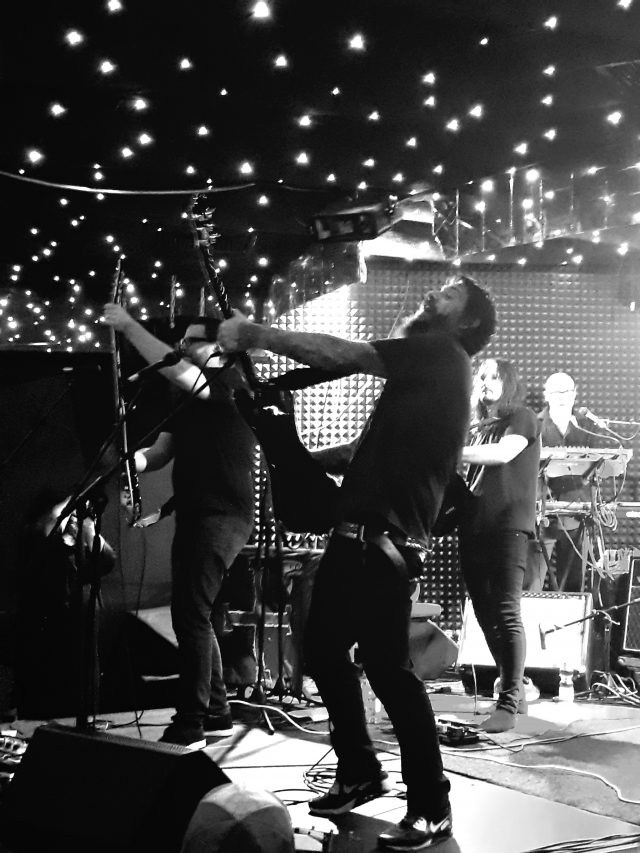
AN: I don’t know whether you can talk about that, but what’s your deal with Season of Mist? Do they pay you, or do you pay them?
JG: No, no, nobody really pays anybody… I see a lot of value in big independent labels. There is always a place for them. A band like us, for instance, we need that kind of support. We wouldn’t be able to make good quality albums if the label didn’t give us an advance to make an album. But the thing is, the advance is always paid back. It’s like a loan basically. The previous album, Bronze, broke even, and everything is good, but then you make a new album and you get back into the red with the label and you have to go on album sales. We’re really lucky to have supporters and fans that like to buy physical copies. Michael, the boss of Season of Mist, he always tells me, physical sales are great, we ship out a lot of albums, but we don’t do much online. We can get a decent amount of advance to make a good album, and that money always goes into the making of the album. We don’t pay ourselves. We pay the studio, the mix and everything else that goes along with it. As long as we release albums, we probably won’t get any royalties, because we’re always having to borrow money to do something, and by the time we’ve earned it back, we want to do something else. So, we’d have to stop making albums for several years, and then maybe we’d get a little bit, but I’d like just to keep going making albums. As much as I need the money, like anyone else… Again, with the UK at the moment, life is really tough, we’re all struggling for money, but I still invest every penny into the band that we get through the band.
AN: I see, but how do you earn a living then?
JG: I’m on zero hours contracts. I have two of those. I do back stage tech, stage managing at a venue. And my other job is I’m a senior track marshal at a go-kart race track. I’m quite heavily involved with racing. I race gravity bikes. I’m trained to do first aid. I like that, that’s good, but the thing is, it’s zero hours work, so I can’t guarantee how much work I actually get.
AN: I understand. I teach for a living, and I only get paid for the hours I teach. So, in the summer, when there are no classes, I get no money.
JG: Yeah, it’s difficult when you don’t have a regular income. You have to be very, very careful about how you do your finances.
AN: It’s difficult, yes, but it’s also… Maybe I’m romanticizing it, but you’ve got time to do something else. You’re privileged in a way. Don’t you think?
JG: That is true. But I put everything into the band. Doing what I do with the band is like a full-time job that you don’t get paid for. So, when I work to earn money, it’s time that I can’t spend on the band. I see it kind of more like that. Any job really is to subsidize my life and what I do with the band. But, yeah, it does mean that I can come on tour. But, again, if I was away for too long, I would lose even those two zero hours contracts. And you mentioned teaching… I was tutoring kids, it was more like band work, I’m not formally trained in music, it was teenagers from underprivileged backgrounds, and you would teach them how to be in a band, rather than how to play their instruments. But then the government pulled the funding, the college closed down, I moved to another school, it was independent and they couldn’t carry on because of lack of funding, so… It’s such a shame, because there’s so many talented kids, and they just can’t get… They have no opportunity whatsoever.
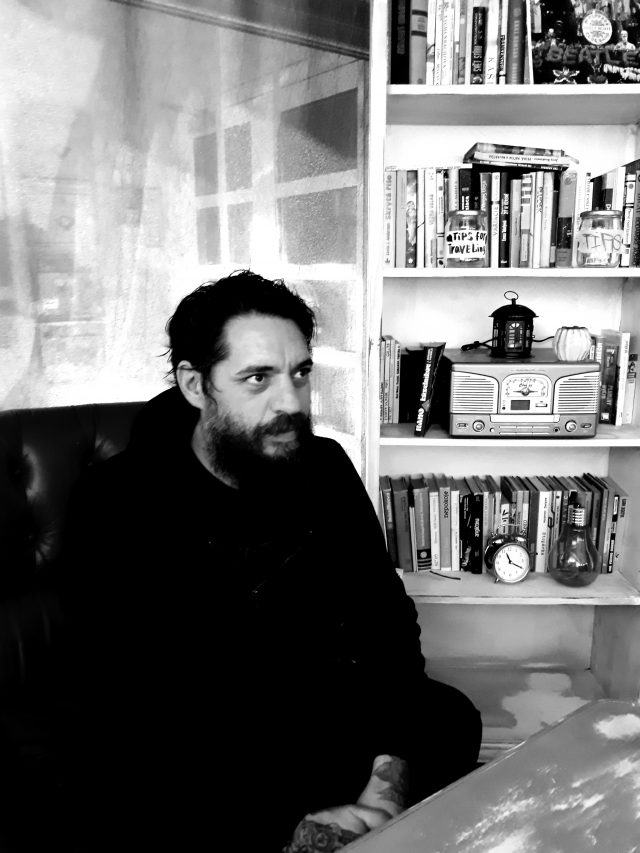
AN: Yeah, I know… Let’s talk a bit about the new album. You’ve got this Alan Watts quote at the beginning of the new album. Are you a religious or a spiritual person?
JG: Definitely not religious, no. The spiritual side of it… That’s just a personal thing. I think that faith is something you can have in anything. You can have faith in whatever you do, whether it’s work or something more otherworldly, it doesn’t really matter. Every faith in something is good, because it’s positive energy. As far a religion goes, I really don’t believe in organized religion. As soon as it gets organized, that’s it. Because that means a lot of repression, a lot of lies, a lot of control… Actually, I wrote a song about that, and we’re playing it tonight, it’s called A Letter Concerning Dogheads. The church in the Middle ages in England told the community that across the hill, or in the woods there are these people with dogheads, and they would get them. But if they came to the church, and paid the church, the church would look after them. That translates to modern government basically. The terrorists are coming to get you, but if you vote for us, we will protect you. Government is just another form of organized religion. Come to us, let us control you, and we will protect you.
AN: The quote is no way connected to Buddhism then, it’s just what Watts is talking about, it’s the subject?
JN: Well, he was really into Buddhism. The thing with Alan Watts is that a lot of what he said really resonates. It does really make sense. When he says that we’re born, and since we’re born we’re basically programmed. You need to go to school, you need to go to college, you need to find a well-paid job, you need to have a family, you need to buy a house, you need to retire – then what? Using him on the album just made so much sense, because of all of the things on the album. The actual quote on the album is that you don’t have to be part of the rat race. You can go along, you can be part of it, but if you don’t want to be part of it, it’s actually not a bad thing. Society can allow a certain amount of people to drop out, it’s not going to fall apart. And that is so true. But we’re taught to think of people as drop outs, as drug addicts, as alcoholics. Dropping out of society doesn’t mean you’re a wrong kind of person, it means that you don’t belong to the brainwashed mainstream. You can live life as you like, you can have a very righteous life, you can have a very fulfilled life, you can have a lot of success. But success doesn’t have to mean money, it can mean being happy doing what you are doing. And the world is going to be OK. In fact, it would be a better place, if…
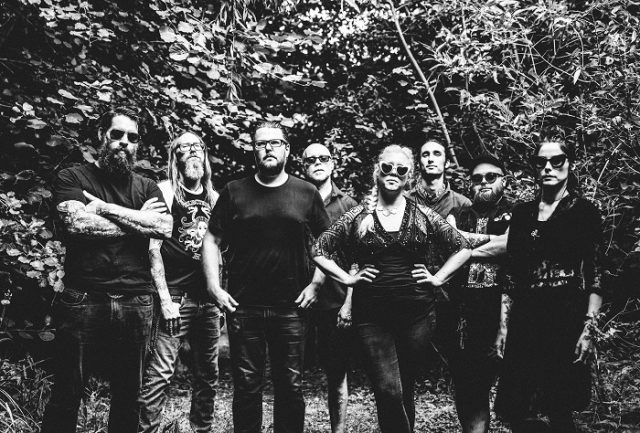
AN: If people weren’t so ambitious about acquiring all these material things?
JG: Yeah, you can’t take them with you when you die, so…
AN: There is a short story by Leo Tolstoy where the main character ends up needing only the piece of earth he’s buried in.
JG: Yeah (laughs), all you need is a very small piece of earth, and then you can plant a tree on it and you’re going to fertilize the tree.
AN: I’m a bit reluctant to ask you more specifically about the album, because I think it’s very personal and deals with a very difficult topic, but I’d like to ask you this: What’s the great escape?
JG: Well, wow… For sure, there’s the personal thing. The whole thing with the album and the escapism comes from a place of total resignation to lots of bad situations – that’s all the personal stuff. And when you get to that point it’s just like OK, stop the world, I want to get off, I don’t want to be part of this anymore.
AN: Like him? [Someone has turned up Audioslave really loud and Chris Cornell is singing Show me how to live. The irony!]
JG: Yeah. The whole thing seems to afflict creative people a little more, because creative people think about things a little bit too much for their own good, analyzing stuff, self-analyzing, which is not always a good thing. It can make you very… It’s almost like a dichotomy: you can be really wise, because you actually pay attention to things, and really think about it, but then you do it too much and it’s very destructive. I think that wisdom can actually take you over the edge sometimes… But the album is about a lot of other things as well. Take for example the track Nebulas. It’s an apology, it’s wanting to take the animals away from all the cruelty, let them escape. Maybe the seed of the album came from a personal place, but the seed grew into something a lot bigger. Maybe it’s just something that resonates with a lot of people… To be honest, I didn’t really think about it too much, it’s an album that just happened. And it’s weird, because this album seems to be going down well. It’s kind of weird how well it is being received. The theme of it is being well received, which is a new thing really.
AN: Escapism?
JG: Yeah. It’s strange. But it definitely wasn’t done for any kind of motive.
AN: I see. So, the horse on the cover is not ascending to heaven?
JG (laughs): No. It’s just going to a lot better place than this place.
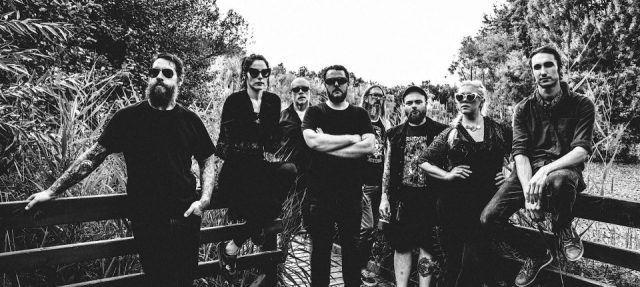
AN: OK, that’s pretty much everything I wanted to ask. One last question: What does the future hold for Crippled Black Phoenix? You said you could go on making albums forever.
JG: Oh, yeah, I hope I do. I like being productive. I love my band. The guys… It wouldn’t be the same without any of these guys. I’m so lucky. And I just kind of want it to keep doing what it’s doing. The band work is tough, but I would need to do it. Again, escapism. Music it great for that. It’s great therapy. That’s one of the main things that I get from it, it’s really good therapy. I’ve had moments, where I can’t do anything, where I can’t function at all. But, for whatever reason, even when I’m like that, I can make some music. It’s the one thing that I can do, when everything else falls apart, and I hold that so dear… But when you talk like that, people shy away from it. It’s not what “tough” guys do. I actually believe it’s tougher to talk about it.
AN: Absolutely.
JG: Not a lot of people do.
AN: The “tough” guys don’t talk about it, because they don’t have the guts to talk about it.
JG: Exactly. I think it’s the easiest think in the world to do, to show up and to pretend to be somebody else in a rock n roll band, sing about whatever and go and have a party every night. It’s completely different than us. I don’t even drink now. I mean… I just want it to continue. I don’t ask for much. I don’t expect anything. I work really hard. I don’t want to be involved in any scenes. I don’t want to be involved in any dramas. Sometimes with the whole underground music scene… Sometimes I wish my name was never mentioned.
AN: Why?
JG: Because for me it’s about making music. That’s why I like doing soundtracks, because it’s more anonymous. You’re being creative, you’re having an outlet, but you having an outlet is giving something creative to other people, which is very satisfying. And when you’re doing a soundtrack, people are getting something from it, but they are not thinking about who makes the soundtrack. They are just getting something from it. To me, that’s pure artistry. I just don’t want to be that “guy”. I ended up I this position. I have to do it, because no one else is doing it. I make music that I want to hear, because no one else is making music that I want to hear. That’s another great motivator. When you want to hear something that doesn’t exist, you make it yourself.
AN: That’s a good thought for the end. Thank you for the interview.
JG: Thank you.
(Interview Slavica)
https://www.facebook.com/CBP444

Leave a Reply